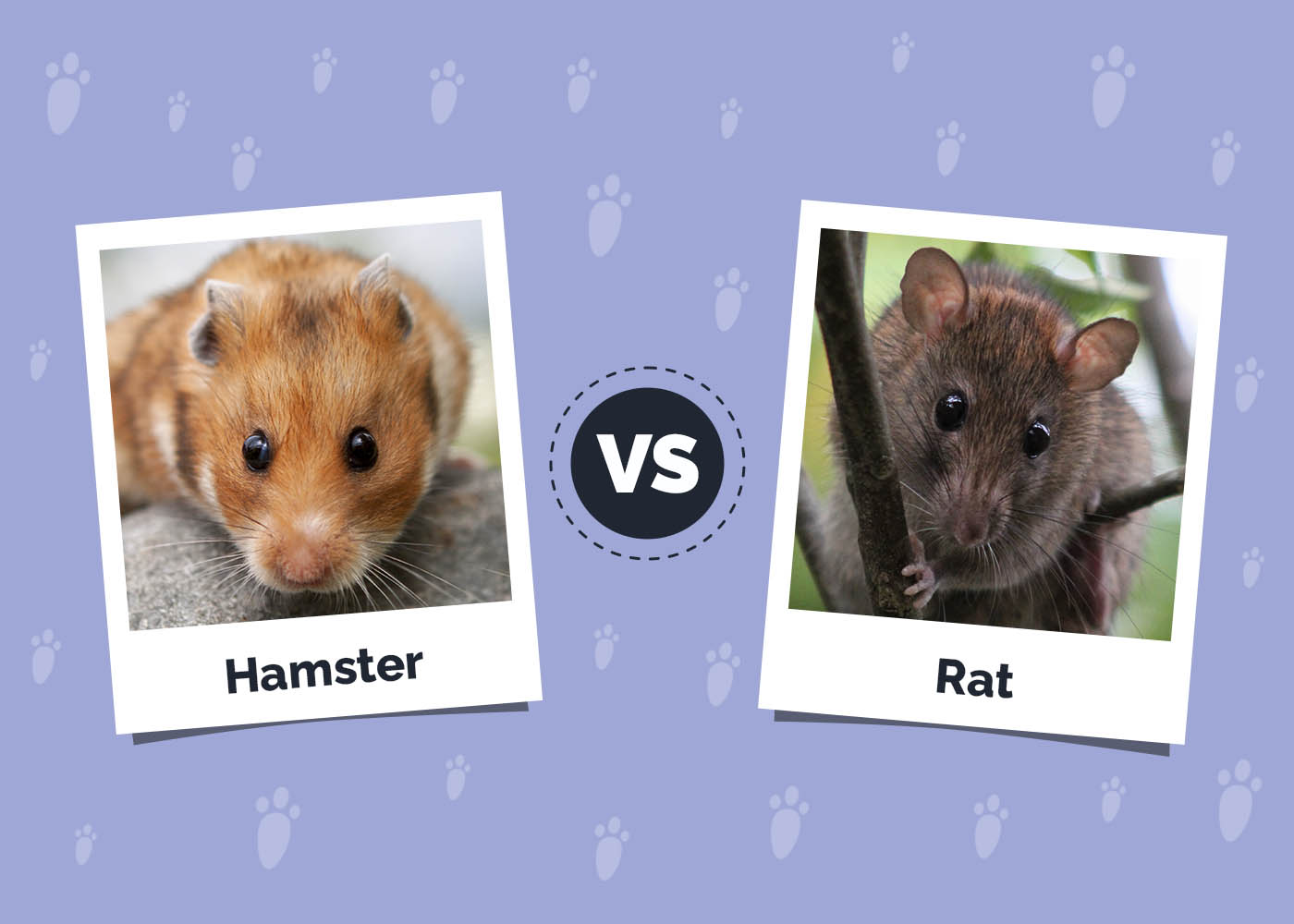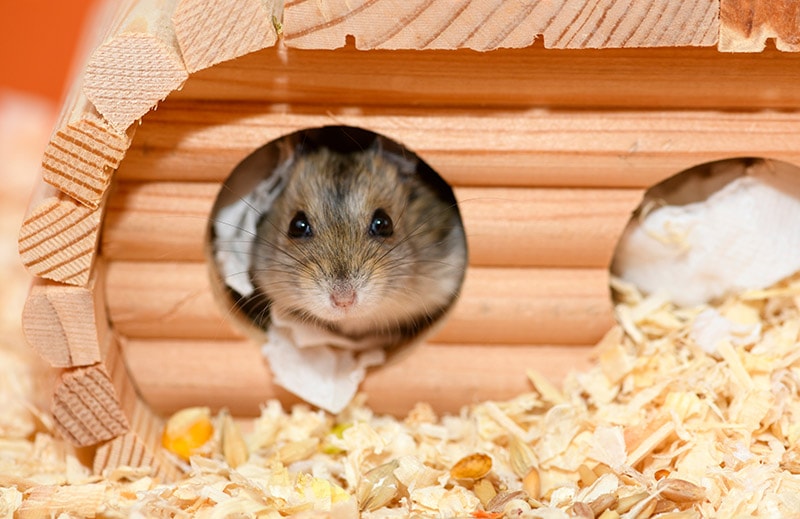How Long Do Hamsters Live? Vet Reviewed Average Lifespan, Data & Care Tips
Updated on
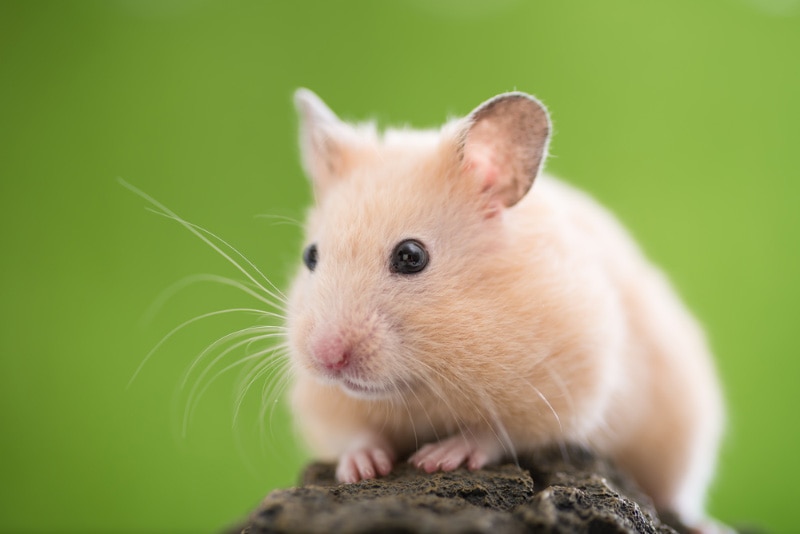
Click to Skip Ahead
When you think of long-lived animals, you think of the huge ones like blue whales and elephants. On the flip side, small, furry critters like hamsters have much shorter lifespans. To be exact, most species of hamster live around 2 years, with Syrian hamsters more likely to live longer than dwarf breeds. Because of this relatively short lifespan, hamsters skitter quickly through the stages of life.
Hamsters are fascinating and lovable little creatures, but most people don’t know much about how they grow up. If you’ve ever been a little curious, we’ve got you covered. Read on for more details on the life stages of the hamster, what factors can affect their life expectancy, and how to help your hamster live a healthy and full life.
Hamster Average Lifespan
As already mentioned, most hamsters live for around 2 years when kept as pets. One study by the Royal Veterinary College looking at the clinical records of 4,000 pet hamsters, found the average age of death was only 21 months. Domesticated hamsters are quite sensitive creatures and the study found that the most common disorders were ‘wet tail’ (diarrhea or liquid discharge), bite injuries from other hamsters, overgrown nails, overgrown front teeth and traumatic injury.
How Long Do Hamsters Live in the Wild?
Wild hamsters can live for longer, for example the European hamster has been observed to live up to 8 long years 2 in the wild. However, a hamster’s average lifespan is usually shorter in the wild compared to pet hamsters due to the threat of predators and adverse environmental conditions.
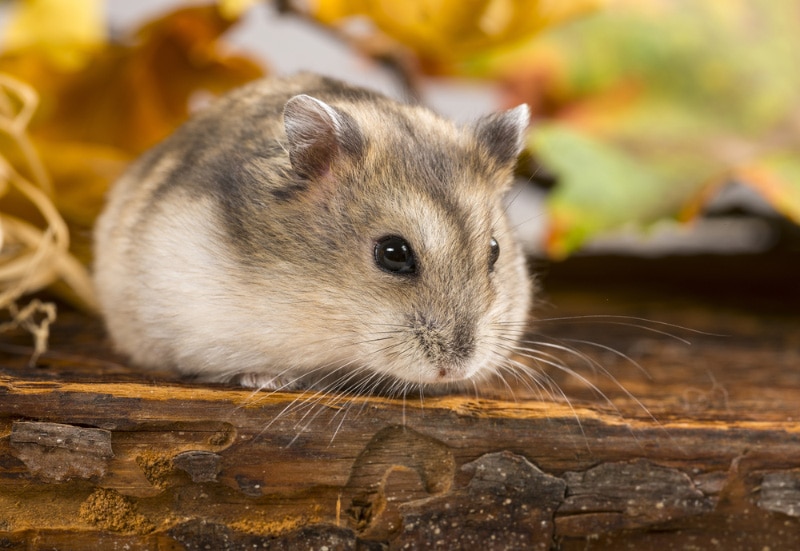
What Affects a Hamster’s Lifespan?
Other than species, the most powerful factors that affect how long a hamster lives are environment and diet. A hamster in a habitat closely molded to their natural habitat will live longer than a hamster in a dull, sterile glass box. They’ll also become more stressed out, which contributes to poor health and short lifespans. A poor diet can lead to nutritional deficiencies, dental problems and digestive issues like diarrhea.
How to Care for Your Hamster for a Long Lifespan
Hamsters aren’t long-lived pets, but it’s only natural we want to keep them as healthy as possible to maximize the time we have with them. There are some ways you can help your hamster live as long as possible.
Feeding & Diet
Frequently give your hamster clean, fresh water to ward away potentially fatal dehydration. On top of that, feed your hamster a balanced, varied diet of pellets, veggies, fruits, and hay. However, most of their food should come from store-bought pellets, which include all the nutrients they need to thrive.
Environment
Keep their habitat clean to minimize bacteria-borne illness from spreading. They need a clean, dry, and comfy place to live with plenty of space to move around. Plus, they like to burrow, so be sure to provide ample bedding. You should also provide your hamster with plenty of exercise and environmental enrichment to discourage an unhealthy sedentary lifestyle.
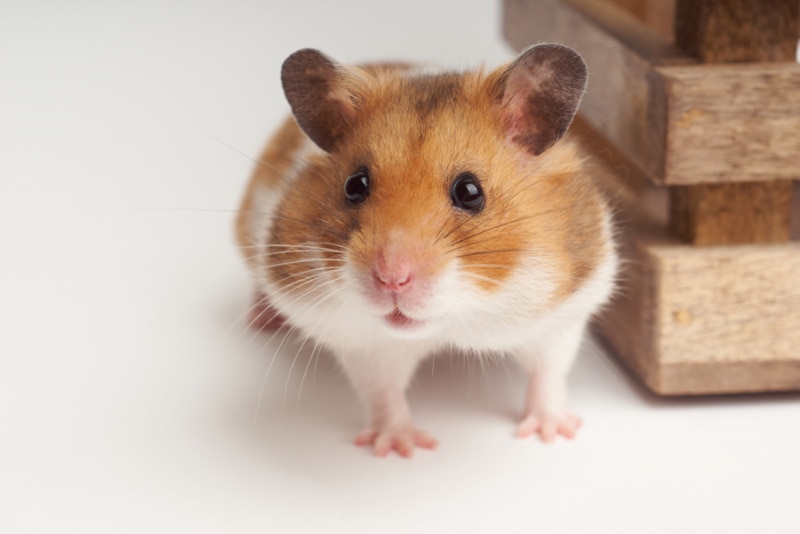
Cleaning
Cleaning a hamster cage involves a process with daily, weekly, and monthly maintenance. You should scoop out any soiled bedding on a daily basis, as well as clean out their food and water bowls or bottles. All of the bedding should be replaced weekly. Depending on your setup you’ll need to do a deep clean of the entire habitat at least once a month.
Grooming
Hamsters are sort of like cats in that they are fastidious groomers, so baths are not necessary. If absolutely necessary, you can rub down a dirty spot that they can’t reach with a damp towel, but you must be sure to dry them thoroughly afterward.
Some hamsters, like dwarf hamsters, benefit from sand baths. This entails providing them with a dish of small animal dust and allowing them to roll around in it, but don’t keep it in their habitat for more than about 20 minutes. Other than that, you can basically keep them groomed by brushing their hair if they have long hair, ensuring their nails stay trimmed, and keeping their teeth in check since they constantly grow.
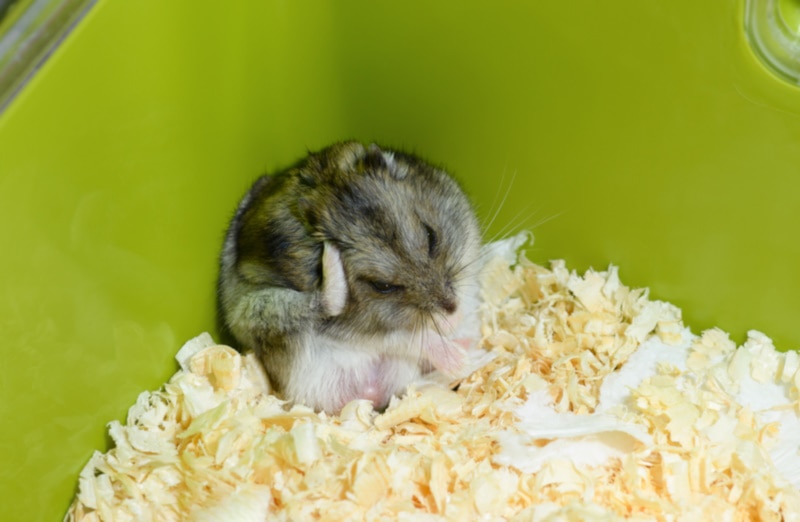
The Life Stages of a Hamster
Hamsters are born bald, blind and deaf, but they grow shockingly fast! Unlike turtles that take years to mature, hamsters fly through their youth into maturity with barely enough time to distinguish the stages. For a better idea, take a look at the average hamster’s life stages, when they are, and what they’re like.
| Newborn (0–28 days): |
Like puppies, newborn litters of up to 20 hamsters are blind, deaf, and 100% dependent on their mother for nutrition and warmth. They start growing fur at 5 days and open their eyes at around 14 days. Hamsters usually stay with their mother until 21-28 days of age.
|
| Adolescence (4–9 weeks): |
Roughly teenagers now, these hamsters are at their most active and usually separated from their mothers and litter to be sold as pets. If kept together, adolescent hamsters may fight.
|
| Maturity (6–9 weeks): |
Male hamsters become sexually mature a bit faster than females at 4–6 weeks, but females can take as long as 6–9 weeks to be considered adult or mature. They shouldn’t be bred until at least 8-12 weeks.
|
What Hamster Species Live the Longest?
As mentioned above, some species of hamster live longer than others, which is mostly down to that particular bloodline’s genetics, diet and environment. However, Syrian hamsters generally live longer than the dwarf varieties. Whatever the species, by the time a hamster reaches 1.5years they are considered elderly.
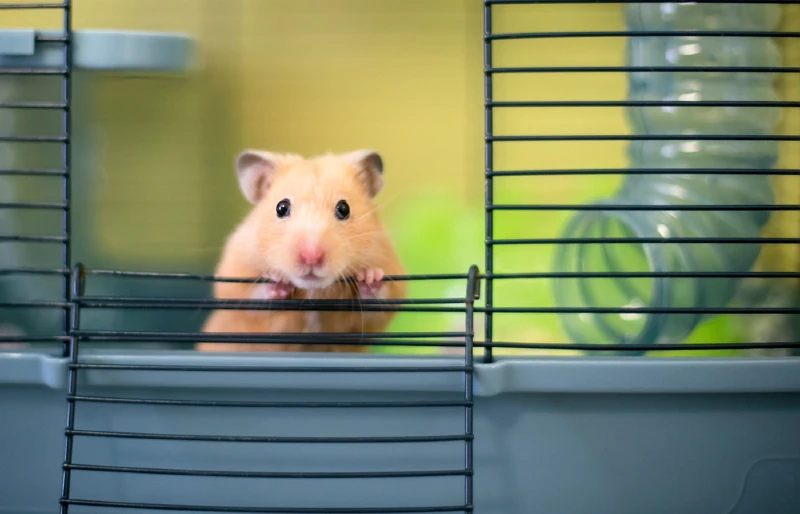
Conclusion
Hamsters don’t live as long as cats or dogs, with an average lifespan of 2 years but with some living up to 4 years. It’s critical that you help your hamster by providing the right environment for them to live in, keeping their cage clean and feeding them a balanced diet with all the nutrients they need to live a long, stress-free life.
See Also:
- Do Hamsters Hibernate? Vet Approved Facts & FAQ
- How Long Can a Hamster Go Without Food & Water? Vet Reviewed Facts & Alternatives
Featured Image Credit: stock_shot, Shutterstock


